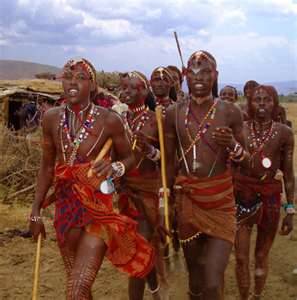TEACH A LION TO LAUGH? NOT NECESSARY
I’m reading a novel set during the time of South Africa’s transition from apartheid to universal suffrage. Like so many books about this country, “Skinner’s Drift” by Lisa Fugard, paints a stark picture of exotic terrains that seem almost otherworldly — as if heat, wind and dust had smeared the vistas like wet paint across a canvas. Fugard’s book about Sub-Saharan Africa is a stark picture of survival much like those of her predecessors: Robert Ruark’s “Uhuru,” Alan Paton’s “Cry the Beloved Country” or Isak Dinesen’s, “Out of Africa.” Certainly Fugardcaptures the feel of the place, where every moment that passes requires determination and strength of will. After all, this is the wilderness where Homo sapiens left their first footprints in the sand.
But life in the veldt is not without its moments of joy and laughter. Alexander McCall Smith in his famous “First Lady Detective” series shows us that other side of Africa. And one of my favorite movies filmed on that continent is “The God’s Must be Crazy” — a story that turns the spy glass on human behavior upside down with humor and charm.
I admit during my travels there in the 1960s, I witnessed tragic scenes that are forever seared into my brain. But I remember the laughter, too, especially one humorous moment that occurred on a hot afternoon. I don’t recall where I was at the time. My train had made an unscheduled stop for repairs outside a small village. We would be stranded for a couple of hours I was told, and so I hung my camera about my neck and decided to stretch my legs. In so small a village, I couldn’t get lost, so I wandered off among the makeshift alleys that threaded between the numerous mud huts. What attracted me was the sound of drums somewhere in the distance.

(courtesy: target.com)
Eventually, I came upon a gathering of Maasi men, their bodies caked in red clay. They were engaged in a rhythmic dance, swooping and twirling as they carried their spears high into the air, a sight so captivating that I longed to record it with my camera. Knowing the Maasi didn’t like to have their pictures taken, I hid behind the cluster of men who stood with their arms folded, observing the dance. Hidden as I was, I snapped off one photo and then another and was about to take a third when the drumming stopped. Looking up from my view finder I discovered the crowd had separated and I was alone. The dancers stood opposite me, their spears lifted, and then, with no time for me to run or cry out, they charged.
In that small eternity I can’t say I was afraid. Fear came later when I had the leisure to reflect upon my foolishness. What I did experience was a sharp regurgitation of bile once the charge had ended, which it did, and as near to me as the tip of my shadow. Left with my mouth hung open, I watched as the Maasi and everyone else collapsed into thunderous laughter.
What a joke that was and I deserved to be the butt of it. Still the triumph wasn’t all theirs. I kept their pictures.